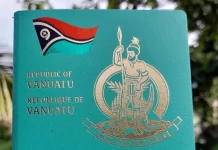A key commitment from the WTO’s Fisheries Subsidies Agreement has now been made effective.
Specifically, the WTO Fisheries Funding Mechanism envisioned in that Agreement is now operational and ready to accept donations to support developing and least-developed countries in implementing the WTO’s new agreement to curb harmful fisheries subsidies.
The WTO Secretariat formally submitted its notification outlining how the Fund will work and its estimated budget to WTO members at a meeting of the Committee on Budget, Finance and Administration on 8 November.
As part of the WTO Agreement on Fisheries Subsidies adopted at the WTO’s 12th Ministerial Conference last June, members endorsed the establishment of a new funding mechanism, in cooperation with relevant international organisations, to accept voluntary contributions to provide developing and least developed country (LDC) members with targeted technical assistance and capacity building for the purpose of implementing the disciplines under the Agreement.
With the Fund now operational, donors can begin making their contributions to the Fund.
“This is a meaningful step and a promise kept to our developing and LDC members,” Director-General Ngozi Okonjo-Iweala said. “The activation of the Fund should provide momentum for efforts to secure the Agreement’s entry into force as well as the “second wave” of negotiations on further rules for subsidies contributing to overcapacity and overfishing. Now is the time for donors to make their contributions.”
Deputy Director-General Angela Ellard welcomed the activation of the Fund and thanked WTO members for their constructive engagement in establishing the terms of its operation.
“This Fund is very important for those members who need capacity building and technical assistance to better manage their fisheries and implement the disciplines in the Agreement,” she said. “We have now established the concrete mechanism to provide that assistance, providing confidence that their needs will be addressed. We continue to call on members to undertake the domestic steps necessary to formally accept the Agreement so that the disciplines enter into force and begin improving ocean sustainability and benefitting those who depend on fishing.”
The proposed Fund will be operated by the WTO with partner organisations to tap relevant expertise, such as the Food and Agriculture Organisation (FAO) of the United Nations, the International Fund for Agricultural Development and the World Bank Group. Around US$20 million in contributions will be targeted over the course of the Fund’s operation, with an initial starting amount of around US$ 10 million.
The landmark Agreement – the first WTO agreement with an environmental objective at its core – prohibits subsidies that contribute to illegal, unreported and unregulated fishing, as well as fishing in the unregulated high seas and in overfished stocks. The Agreement will enter into force once it has been accepted by two-thirds of the WTO’s 164 members.
The Agreement also commits members to continue negotiations on outstanding issues to achieve a comprehensive agreement on fisheries subsidies by the WTO’s 13th Ministerial Conference (MC13). These negotiations will aim to develop further disciplines on certain fisheries subsidies that contribute to overcapacity and overfishing along with appropriate special and differential treatment for developing and LDC members.
WTO members met at an informal retreat on 10 October to share ideas and think creatively on how to approach this “second wave” of negotiations to further discipline harmful fisheries subsidies.
SOURCE: WTO/PACNEWS















